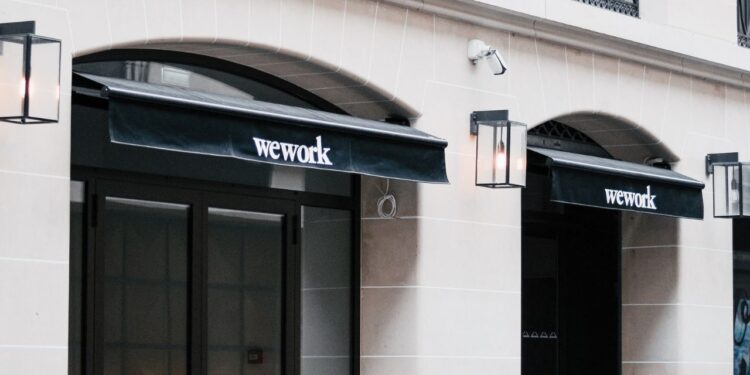Amid staggering losses, speculation of bankruptcy, and still crashing stock prices, WeWork held a brief conference call with landlords Wednesday morning to announce it will renegotiate most of its leases, as reported by The Real Deal.
This move is an effort to address its high leasing costs and exit underperforming locations, globally. The 5-minute call seemed to reflect the urgency that they showed with a reported 45-day goal to complete all negotiations.
The promises come during a dramatic period for WeWork. The company’s stock has seen a truly remarkable decline, with its market cap plummeting from a peak of $47 billion to about $200 million, as reported by CNBC. Despite these financial challenges, which are unrivaled in the coworking industry, interim CEO David Tolley remains optimistic.
Tolley stated in an open letter Wednesday morning that WeWork is “here to stay” and emphasized the company’s commitment to achieving a sustainable operating model while remaining in “the majority” of its markets.
“We expect to exit unfit and underperforming locations and to reinvest in our strongest assets as we continuously improve our product,” Tolley said of the lease negotiations. “We will remain a global flex space leader and trusted real estate partner to our members.”
Now more than ever, WeWork moves are under the watchful eyes of investors and competing coworking operators. The coworking company’s reverse stock split was one of the last-ditch efforts to prevent it from being delisted from the New York Stock Exchange (NYSE). To maintain a listing, the company’s stock must uphold a minimum bid price of at least $1.
The company’s stock price should have, in theory, benefited from the reverse split, which went into effect at market close on Sept. 1, but as of now it seems the opposite occurred. The stock value plummeted by 19.55% following the execution of its 40-to-1 reverse stock split, according to the Dhaka Tribune. The nearly 20% drop makes it clear that the investors still perceive WeWork as a risky investment.
Despite Tolley’s optimism, WeWork’s stock performance post-reverse split serves as a reminder that the future of the company remains in limbo, and that the business must adapt to negative perceptions while dramatically altering its business model.



 Dr. Gleb Tsipursky – The Office Whisperer
Dr. Gleb Tsipursky – The Office Whisperer Nirit Cohen – WorkFutures
Nirit Cohen – WorkFutures Angela Howard – Culture Expert
Angela Howard – Culture Expert Drew Jones – Design & Innovation
Drew Jones – Design & Innovation Jonathan Price – CRE & Flex Expert
Jonathan Price – CRE & Flex Expert













